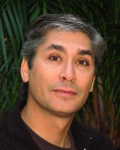2010
W. Patrick McCray
- Professor
- University of California, Santa Barbara

Abstract
Mody, McCray, and Mills will investigate what they call “exponentiality” in the microelectronics industry and in the rhetoric of high-tech intellectuals. They are interested in the traffic between the instrumental version of Moore’s Law—the 1965 prediction that the number of electronic components that could be crammed on a chip would double every 18 months to two years—and its use as a rhetorical trope for describing the relationships between humans and technology. Since 1965, this "law" has gradually become a self-fulfilling prophecy critical to timing and coordinating technological change in the multi-trillion dollar global electronics industry. In turn, high-tech intellectuals have taken the exponentiality of Moore’s Law—the doubling of capacity per constant unit of time—as the cause of, as well as a metaphor for, transformations in other domains. The idea that technological change at the level of microelectronics is inevitable and accelerating has spurred broad claims that humans are necessarily becoming more connected, longer-lived, and more liberated from bodies, governments, and traditions.
The research group has expertise in engineering, biology, history, media, and management studies. Hyungsub Choi, program manager for Electronics and Emerging Technology at The Chemical Heritage Foundation (CHF), will be an outside collaborator for “Micro Histories and Nano Futures,” coordinating the distribution of the group's findings through outlets supported by the CHF (e.g., web exhibit or series of white papers). The researchers have previously collaborated as members of the Center for Nanotechnology in Society at UCSB (CNS-UCSB), a national consortium of social scientists and humanities scholars funded by the National Science Foundation to study the social context and public perceptions of nanotechnology.
Award period: January 1, 2011 – June 30, 2011
The research group has expertise in engineering, biology, history, media, and management studies. Hyungsub Choi, program manager for Electronics and Emerging Technology at The Chemical Heritage Foundation (CHF), will be an outside collaborator for “Micro Histories and Nano Futures,” coordinating the distribution of the group's findings through outlets supported by the CHF (e.g., web exhibit or series of white papers). The researchers have previously collaborated as members of the Center for Nanotechnology in Society at UCSB (CNS-UCSB), a national consortium of social scientists and humanities scholars funded by the National Science Foundation to study the social context and public perceptions of nanotechnology.
Award period: January 1, 2011 – June 30, 2011

